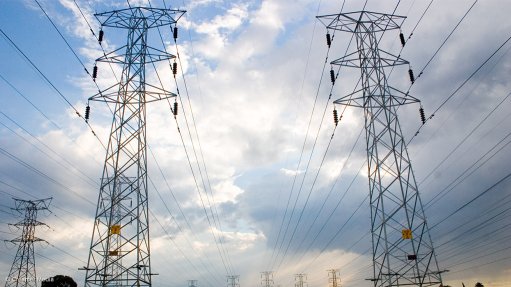
Photo by: Creamer Media
Electricity State of Disaster and Eskom auditing trickery canned…
Two of the Big Three measures government recently introduced to stabilise Eskom – the declaration of a State of Disaster, and special auditing measures for the ailing power company – have been sunk in a storm of mistrust and anger.
The third of the big ticket items was the appointment of a Minister of Electricity, for whom the State of Disaster and proposed new financial reporting system, would have presumably been critical levers.
The real effect of government’s one-step-forward-one-step-backward Eskom routine will be negligible because, as GOOD said in response to the announcement of the State of Disaster, it was unnecessary and reflected government desperation to create the impression that it was nominally in control.
The idea that a State of Disaster would provide a tool to speed up the procurement of energy – for example, from power ships – may have sounded plausible, but wouldn’t have stopped the implementation of critical decisions being delayed through court challenges.
If anything, the only advantage to the state of declaring the Disaster, was the potential to disempower citizens by removing checks, balances and transparency from decision-making – which is not an advantage at all.
Ditto, the reversal of Eskom’s exemption from provisions of the Public Finance Management Act. Theoretically, exempting Eskom from reporting on wasteful and irregular expenditure not involving corruption in its annual financial statements would have created a better impression of governance among lenders and investors.
But due to the trust deficit that exists between the government and citizens the exemption was widely viewed as another measure to disempower citizens by avoiding scrutiny.
Eskom management and government leaders must remain focused on concrete steps towards sustainable solutions.
They must remain focused on addressing maintenance backlogs, procuring engineering and maintenance capacity, and buying replacement parts from original equipment manufacturers.
Parallel to the short-term priority to stabilize the coal-powered fleet of power stations, the building of extra transmission infrastructure is critical if we are to bring additional renewable energy to the grid.
Massive renewable energy capacity must be added to energy mix, and there are concrete steps that government can take, which it is not presently taking, to assist consumers get off the grid.
The weight of continuous power cuts is destroying businesses and livelihoods, undermining the country’s reputation, making life a misery for consumers and adding to inequality.
Issued by Brett Herron, GOOD: Secretary-General & Member of Parliament